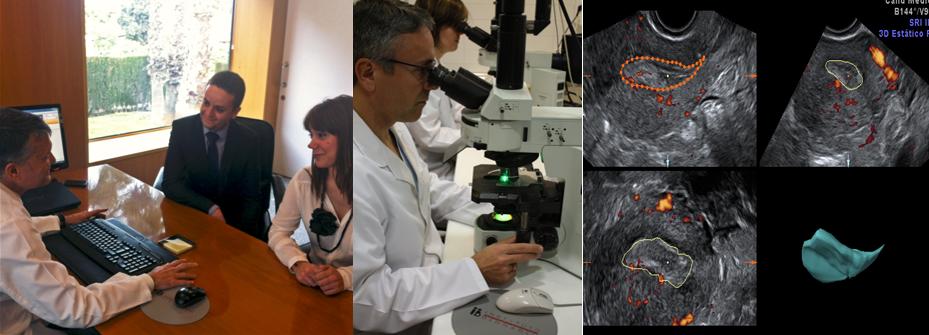
Usefulness of Comprehensive Chromosomal Screening (PGS/PGT-A/CCS) in Recurrent Miscarriages
When couples make the decision to have a baby, either by natural means or by resorting to assisted reproduction techniques (ART), one of their main concerns is having a full-term pregnancy and a healthy baby. Miscarriage occurs in about 10-15% of pregnancies and is regarded as a “Recurrent miscarriage” when two or more pregnancies are lost spontaneously.
The cause of “Recurrent miscarriages” may be immunological, hormonal or uterine. Yet, the most common cause is no doubt chromosomal, since it is present in more than 50% of cases.
Embryos with chromosomal abnormalities (i.e. having excesses or deficiencies of genetic material) may lead to three different scenarios:
- Not implanting and not producing a pregnancy.
- Producing a pregnancy but resulting in a miscarriage.
- Producing a pregnancy but resulting in the birth of a baby with a disease because of chromosomal abnormalities.
PGS/PGT-A/CCS or Comprehensive Chromosome Screening enables detection of any change in the number of chromosomes in embryos and prevents each and every one of the scenarios mentioned above.
PGS, PGT-A and CCS consist of a biopsy on one or more cells in each embryo obtained as a result of in vitro fertilisation, plus the corresponding chromosomal analysis. There are two techniques that facilitate this kind of analysis: array CGH (Comparative Genomic Hybridisation) and, more recently, NGS (Next Generation Sequencing). Both technologies mean that all the chromosomes in an embryo cell can be analysed and it can be determined if there is excess or insufficient genetic material.
Thanks to PGS/PGT-A/CCS, spontaneous miscarriages are reduced and the chances of having a successful pregnancy are increased in this group of patients, as only those embryos that are chromosomally normal are transferred.
In order to provide couples who are suffering from this fertility problem with adequate reproductive counselling, Instituto Bernabéu has created a specialised unit for the diagnosis and treatment of “Recurrent miscarriage” and “Implantation failure”. The unit is staffed by a multidisciplinary team that studies each case and develops individual protocols to achieve a full-term pregnancy and a healthy baby at home.
Dr. José A. Ortiz, biochemist at IBBIOTECH, Instituto Bernabéu Group
